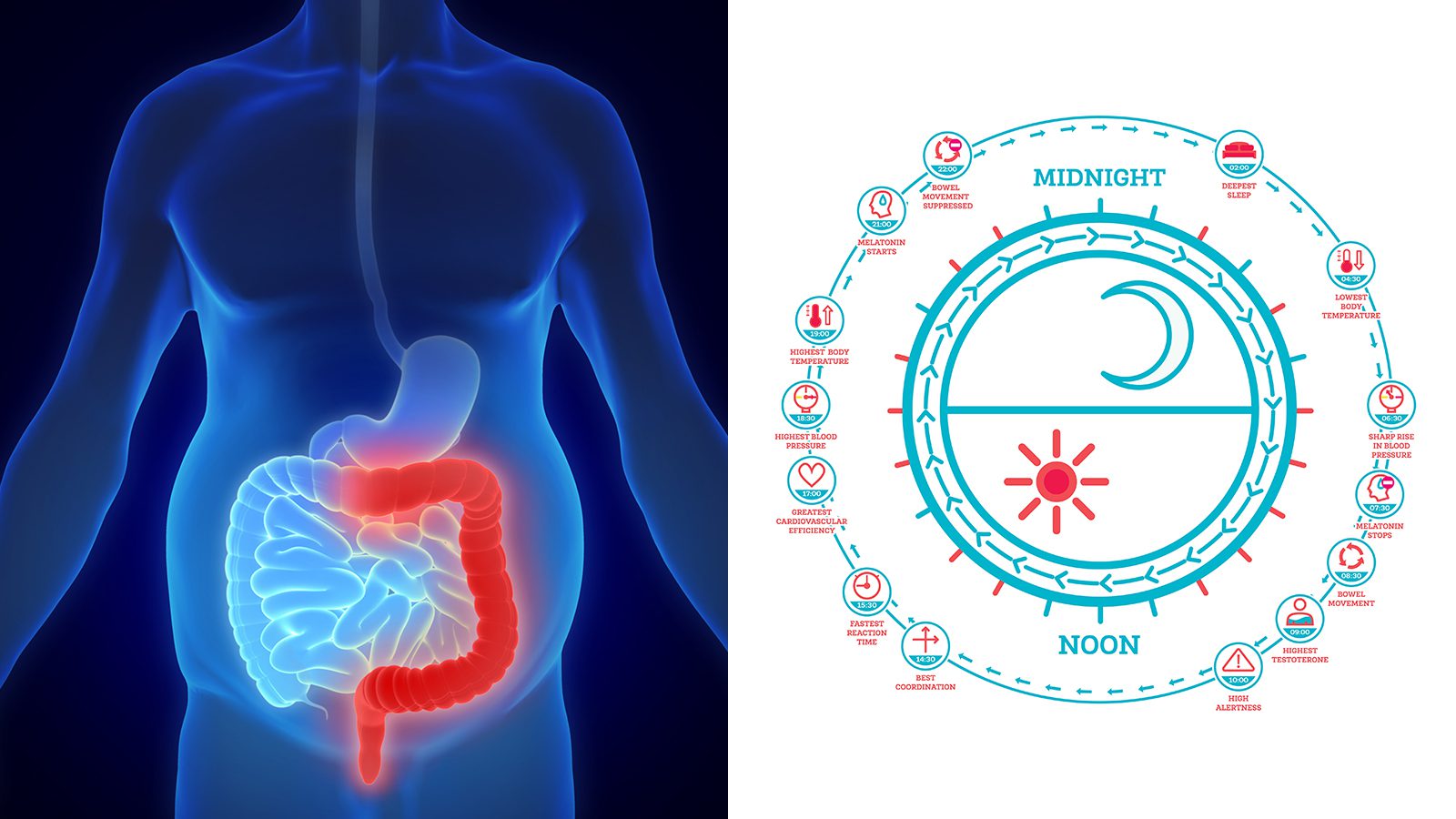Did you realize that all your body’s systems run on an internal clock? It’s called your circadian rhythm, and you’ve probably read about its relationship to sleep. However, other bodily functions take direction from this unique 24-hour schedule. When your body deviates from this routine, it can cause inflammatory disease.
People who stay in sync with these natural rhythms usually enjoy overall well-being. However, internal or external glitches can manifest in physical and mental health issues. Medical experts are researching human circadian rhythms and how they impact autoimmune responses like inflammatory diseases.
Discovering the Genetic Clock
The daily revolution of the sun helped to hardwire the human internal clock. The earliest humans evolved as hunters and gathers, so they needed daylight to find food, water, and shelter.
Before discovering fire, the moon and stars were the only beacons in the darkness and only on clear nights. For them, darkness held life-threatening hazards and fear of the unknown.
So, it stands to reason that humans prefer sleeping at night and being awake during the day. Many animals evolved with this day/night balance, except for nocturnal ones. You’re probably most familiar with this circadian rhythm.
The word “circadian” comes from Latin words meaning “about a day.” According to an article published by Biomed Journal, it was first studied and documented in 1729 by Jacques d’Ortous de Mairan, a French astronomer. Mairan studied a mimosa plant and discovered a definitive pattern of opening and closing its leaves daily.
About two centuries later, a German biologist named Erwin Bünning continued Mairan’s work and suggested that this rhythm operated in 24-hour intervals. He also found that this genetic trait could be inherited with the same response. Bünning attributed this natural phenomenon to an internal clock.
A report published by Quanta Magazine explains that interest in this biological schedule continued into later decades of the 20th century. Thanks to molecular and genetic studies advances, researchers used fruit fly DNA to isolate the 24-hour time-keeping gene. Later research linked it to the human circadian rhythm.
What Makes You Tick?
This personalized timer automatically resets every 24 hours. It helps regulate your brain and other body systems, such as mental and physical states. The clock also has a substantial influence on your behavioral and mood changes.
When you hear the term circadian rhythm, you probably assume it’s referring to your sleep/wake cycle. It’s the most recognized and discussed by experts and in the media. This biological day/night cycle is why you feel energized during the day and get sleepy at night.
However, these daily cycles affect other vital functions in your body. They help digestion, immunity functions, hormonal activity, and body temperature maintenance. Your whole body feels the effects when you’re off the usual routine.
Is This Cycle Linked to Inflammatory Disease?
Not only does your internal clock help regulate sleep and other functions, but it also plays a role in inflammation. Think of your brain as the master clock linked to minute clocks in every cell. It makes sense that it would also affect the activity of your white blood cells and other immune cells.
A small cut on your finger is one of the best examples to understand inflammation. The second your nerve endings register their pain and injury to your brain, your immune system kicks into action. Soldier white blood cells rush to the site to destroy any invading bacteria or microbes.
The brain directs more blood flow to your finger, healing immunity cells and protein. It causes the area around the cut to be swollen, warm, and reddened, hence the word “inflamed.” Your immune system will diligently guard the injury from infection until it heals.
In this sense, inflammation is your ally. It may be painful and unsightly, but it promotes healing and will soon pass. You can also experience this immunity response because of internal injuries or infections.
How does your body know when to produce immunity cells and how to energize them? What helps control transmission on the vast highways of brain cells, neurons, and immunity cells? They follow the natural rhythm of your internal clock.
Inflammatory Disease Gone Wild
Some automatic modes in your body fire up for emergencies, like survival mode. When your life is in danger, this instinct prepares you to fight, run, faint, or freeze with an influx of stress hormones. If you’re in a chronic state of stress, the overflow of adrenaline and cortisol can cause serious health problems.
Likewise, your inflammation response isn’t supposed to be perpetual. For unclear reasons, some people’s immunity system is on autopilot. Your body begins to attack itself and may develop an inflammatory disease.
These conditions become signs and symptoms in a plethora of identified autoimmune disorders. Some common ones include Type 1 diabetes, lupus, multiple sclerosis, rheumatoid arthritis, and Crohn’s disease.
Although these severe disorders affect different body parts, nearly all chronic inflammation is a common denominator. Instead of acting as a defense, inflammatory disease can destroy cells and, eventually, organs and other tissues.
Isn’t It About Time?
Nobody knows exactly what causes autoimmune disorders or the accompanying inflammation. While many of these symptoms can often be managed, there are no cures at the moment. One possible gleam of hope may lie in how the internal clock interacts with your immune system.
Scientists have speculated that a glitch in this natural cycle may be partly to blame. Since immunity cells operate according to your daily rhythm, it stands to reason. A clock that isn’t running correctly can wreak havoc on a mechanical or biological process.
A break in the case may be a study conducted by the Royal College of Surgeons in Ireland, published by Science Focus. The study focused on a protein found in white blood cells called macrophages. This protein is called BMAL1 and may manage the cell’s daily cycles.
The process included isolating immune cells from mice and manipulating the BMA1 in the variable collection. They discovered that when cells had less BMA1, they created a chemical reaction that caused inflammation.
Even though this study was conducted on mice, it may positively correlate with human subjects. The premise is that when your internal clock isn’t working correctly, your immune system can also become unbalanced. The article notes that more research is needed to define this link further.
How To Reset Your Clock and Avoid Inflammatory Disease
Your brain uses light, darkness, and other stimuli to prompt your automatic sleep/wake cycles. Even before humans had clocks and alarms, their internal clocks worked in harmony with nature. Modern technology and other external factors often motivate an unbalanced circadian rhythm.
If you have problems sleeping or battle health issues like inflammatory disease, maybe resetting your internal clock can help. You may also struggle with perpetual exhaustion, unexplained aches and pains, and general malaise. Here are some helpful hints to get your body, mind, and spirit back into sync.
1. Keep a Regular Sleep Schedule
Erratic schedules are one of the main reasons your internal clock is malfunctioning. Maybe you do shift work or a night owl with days and nights reversed. Either way, try to go to bed and wake simultaneously, even on weekends.
2. Watch What You Drink
Another reason your circadian cycle may be topsy-turvy is what you drink. If you need a morning cup of coffee, do it in moderation. Caffeine is a stimulant that can keep you running even when you’re ready for bed. Alcohol can also mess up your sleep schedule.
3. Darken Your Room
If your sleep schedule isn’t working efficiently, look at your bedroom. Turn out all the lights, and what do you see? The flashing alarm clock, cell phone light, and other little glares confuse your brain into thinking it’s morning. Do yourself a favor and keep your bedroom as dark as possible when sleeping.
4. Nap Smartly
There’s nothing wrong with taking a little siesta after a long day at work. Nor can anyone blame you for a leisurely Sunday snooze. However, napping too long can keep you awake all night, and then you’re in a slump the following day.
Enjoy your well-deserved naps at a maximum of thirty minutes. You’ll find that these little breaks can be healthy for you. Plus, they may also benefit your sleep hygiene.
5. Reduce Stress to Lessen Inflammatory Disease
You can’t eradicate every stress in your life, but you can keep it to a minimum. Try stress-busting activities like meditation, journaling, walking, or chatting with a friend. Stress is a massive contributor to sleepless nights, anxiety, and severe health conditions, like inflammatory disease.
Final Thoughts: Your Circadian Rhythm and Inflammatory Disease
Your body is an infinitely beautiful machine that often heals and maintains itself. If your circadian cycles are erratic, you may develop health issues like inflammatory disease. Science is just beginning to understand the vital links that naturally keep your body in balance, but it seems the circadian rhythm is behind many issues.























